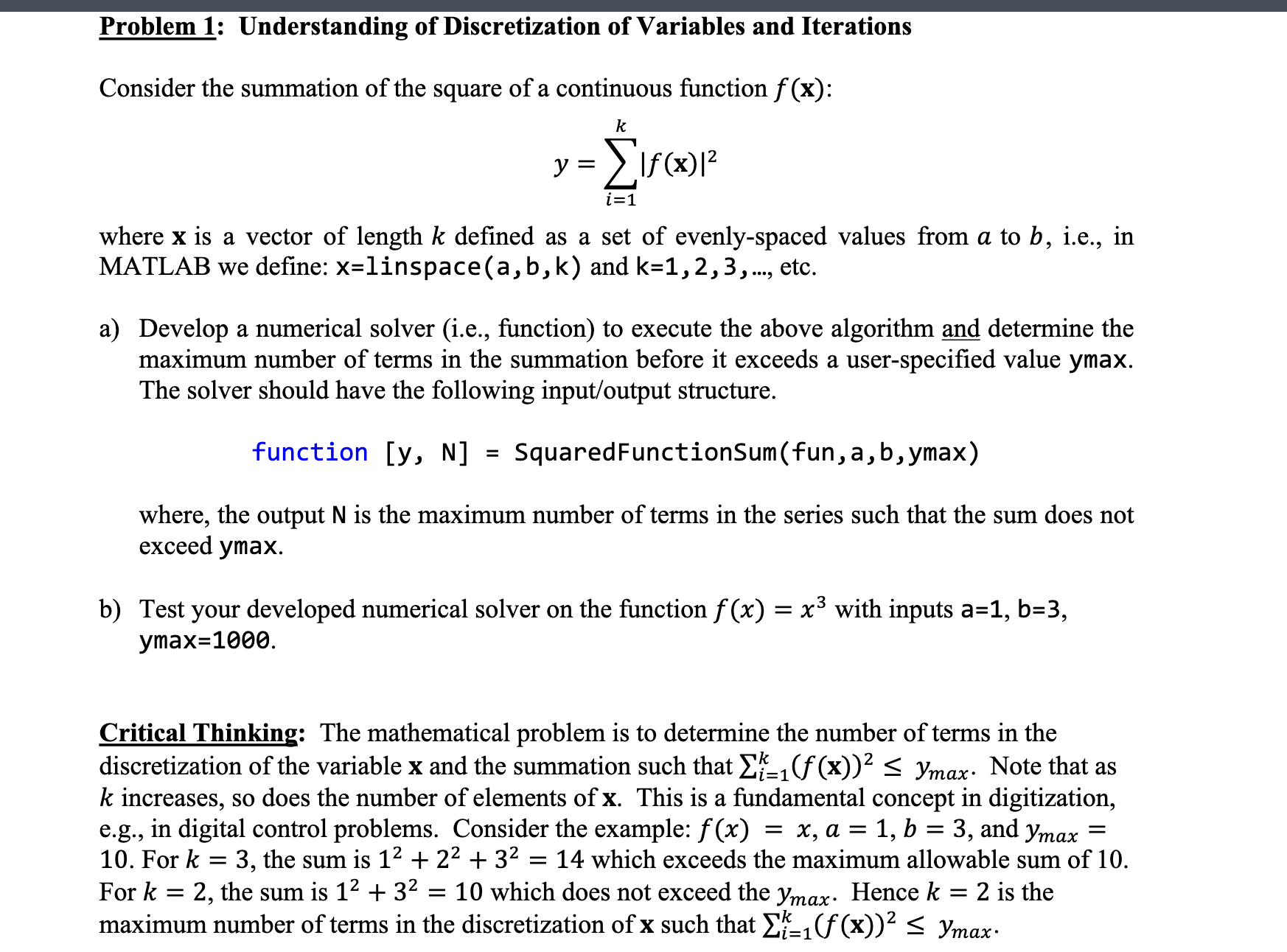Answered step by step
Verified Expert Solution
Question
1 Approved Answer
Problem 1: Understanding of Discretization of Variables and Iterations Consider the summation of the square of a continuous function f(x): k y = f(x)

Problem 1: Understanding of Discretization of Variables and Iterations Consider the summation of the square of a continuous function f(x): k y = f(x) i=1 where x is a vector of length k defined as a set of evenly-spaced values from a to b, i.e., in MATLAB we define: x=linspace(a, b,k) and k=1,2,3,..., etc. a) Develop a numerical solver (i.e., function) to execute the above algorithm and determine the maximum number of terms in the summation before it exceeds a user-specified value ymax. The solver should have the following input/output structure. function [y, N] = SquaredFunctionSum (fun, a, b,ymax) where, the output N is the maximum number of terms in the series such that the sum does not exceed ymax. b) Test your developed numerical solver on the function f(x) = x with inputs a=1, b=3, ymax=1999. i=1 Critical Thinking: The mathematical problem is to determine the number of terms in the discretization of the variable x and the summation such that k_(f(x)) Ymax. Note that as k increases, so does the number of elements of x. This is a fundamental concept in digitization, e.g., in digital control problems. Consider the example: f(x) = x, a = 1, b = 3, and ymax = 10. For k = 3, the sum is 1 + 2 + 3 = 14 which exceeds the maximum allowable sum of 10. For k = 2, the sum is 1 + 3 10 which does not exceed the ymax. Hence k = : 2 is the maximum number of terms in the discretization of x such that (f(x)) Ymax. =
Step by Step Solution
There are 3 Steps involved in it
Step: 1

Get Instant Access to Expert-Tailored Solutions
See step-by-step solutions with expert insights and AI powered tools for academic success
Step: 2

Step: 3

Ace Your Homework with AI
Get the answers you need in no time with our AI-driven, step-by-step assistance
Get Started


